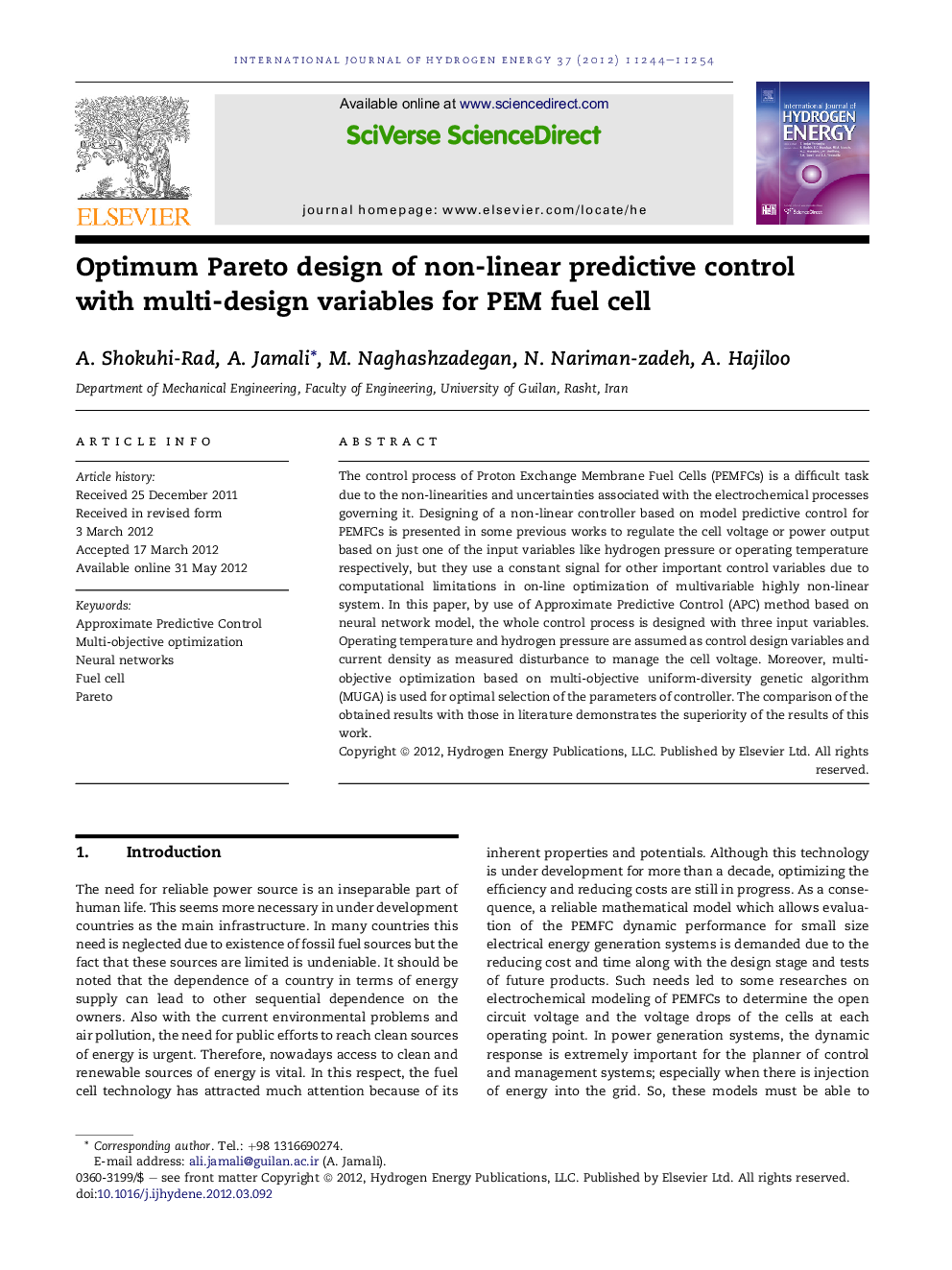| Article ID | Journal | Published Year | Pages | File Type |
|---|---|---|---|---|
| 1276288 | International Journal of Hydrogen Energy | 2012 | 11 Pages |
The control process of Proton Exchange Membrane Fuel Cells (PEMFCs) is a difficult task due to the non-linearities and uncertainties associated with the electrochemical processes governing it. Designing of a non-linear controller based on model predictive control for PEMFCs is presented in some previous works to regulate the cell voltage or power output based on just one of the input variables like hydrogen pressure or operating temperature respectively, but they use a constant signal for other important control variables due to computational limitations in on-line optimization of multivariable highly non-linear system. In this paper, by use of Approximate Predictive Control (APC) method based on neural network model, the whole control process is designed with three input variables. Operating temperature and hydrogen pressure are assumed as control design variables and current density as measured disturbance to manage the cell voltage. Moreover, multi-objective optimization based on multi-objective uniform-diversity genetic algorithm (MUGA) is used for optimal selection of the parameters of controller. The comparison of the obtained results with those in literature demonstrates the superiority of the results of this work.
► A non-linear predictive controller with three inputs is designed. ► Artificial neural networks have been used to model the fuel cell system. ► Approximate Predictive Control is used to handle non-linear multi-objective predictive controller. ► We offer a design to trade-off between the input variations and desired output tracking.
